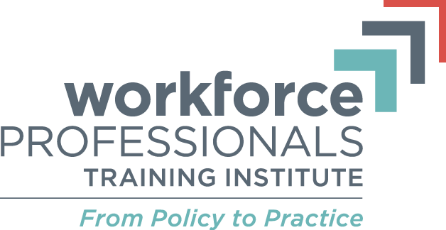 On Thursday, January 24, WPTI and JobsFirstNYC hosted more than 50 attendees, representing 27 organizations, for a Job Developers Networking Breakfast at the Grace Institute. Participants had the opportunity to meet with one another, build partnerships and connections, and learn more about the findings and recommendations issued in the WPTI Workforce Field Building Hub’s (The Hub) Workforce Agenda for NYC Report, published in September 2018. The Workforce Agenda is an in-depth analysis of challenges facing New York City’s workforce development sector and the broader labor market citywide, and issues five practical recommendations on how the workforce community should move forward to make a real impact. The recommendations are as follows:
On Thursday, January 24, WPTI and JobsFirstNYC hosted more than 50 attendees, representing 27 organizations, for a Job Developers Networking Breakfast at the Grace Institute. Participants had the opportunity to meet with one another, build partnerships and connections, and learn more about the findings and recommendations issued in the WPTI Workforce Field Building Hub’s (The Hub) Workforce Agenda for NYC Report, published in September 2018. The Workforce Agenda is an in-depth analysis of challenges facing New York City’s workforce development sector and the broader labor market citywide, and issues five practical recommendations on how the workforce community should move forward to make a real impact. The recommendations are as follows:
- Confront systemic barriers by directly challenging chronic dysfunction in how New York City workforce programs are designed and funded
- Construct an information infrastructure fund by creating a dedicated fund to support ongoing systems of information sharing and analysis
- Build partnerships to support genuine career pathways capacity by investing more deeply in fewer organizations – emphasizing impact over scale
- Launch a professional advocacy campaign by organizing an alliance of powerful stakeholders – insisting on a coordinated, professional, and well-funded workforce strategy
- Sanction a council of workforce leaders by empowering a selected group of leaders to act as the stewards of the workforce system, broadly defined
After a presentation on the Workforce Agenda by Stacy Woodruff, Managing Director of The Hub, the participants broke into smaller groups to discuss the five key recommendations and share feedback and ideas. Some common trends emerged, as multiple groups came back with an interest in building stronger collaborations, both among workforce providers and between workforce providers and other stakeholders, such as employers and community colleges. Furthermore, multiple groups expressed an interest in developing common program metrics and outcomes – particularly feasible outcomes more rooted in the actual experience of on-the-ground workforce providers.
Many participants expressed an interest in building stronger communication across the sector, as well as a leadership council, for multiple purposes. First and foremost, this council could advocate on behalf of the sector. Secondly, it could serve as a seal of approval for successful programs and help less successful programs improve. Finally, multiple groups expressed an interest in better networking and leadership across the sector as a way to prevent “stepping on toes,” meaning the common problem where multiple providers are approaching the same employers, which ultimately overwhelms businesses and undermines opportunities for successful employer engagement. This feedback will inform the efforts of The Hub as we work to build upon the Workforce Agenda report, dig deeper into specific topics, issue further policy recommendations, and begin to build the councils, networks, and other bodies necessary to advocate effectively on behalf of the workforce development community.
Ultimately, networking breakfasts offer an opportunity for frontline workforce development staff to not only meet with one another, build networks, and brainstorm ways to address common workplace challenges, but also to provide critical feedback to WPTI and the broader workforce community, which fosters better practices and ultimately a stronger workforce development system citywide. We look forward to hosting additional sessions in the coming months, and continuing to engage service providers and workforce development professionals as we work to build a better workforce system for New York.

